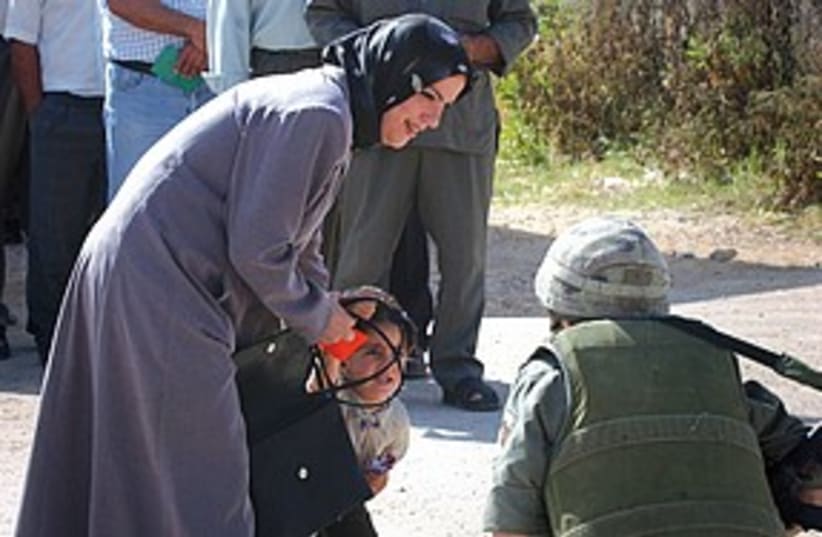Questions Surrounding a Prospective NATO Peacekeeping Deployment It has been suggested that an international force, perhaps a NATO force, should replace the IDF presence in the West Bank.While I would not exclude that idea in principle, it raises a number of serious questions. First of all, where are the NATO troops going to come from, and how long are they going to stay? Let us not forget the difficulties that NATO still has in mustering forces for the war in Afghanistan – and this is for a campaign that is NATO’s main effort, and its only real, current, live operation.Many of the troops there are restricted by significant national caveats, including restricting deployments to the safest areas.Some nations are simply not prepared to put their troops into undue danger. Unfortunately, undue danger goes hand in glove with war and with the toughest peacekeeping operations, and the West Bank would fall clearly into that category.Some NATO nations can’t operate after dark, and they leave the insurgents to control the night, with all the implications this has.There is a significant risk that in trying to develop and maintain good relations with all parties, the peacekeepers would instead become the enemy of both sides. Potential contributors to the international forces would know that. What would happen to those prepared to take part when the going got tough, as it inevitably would? Think of Lebanon in 1983, when suicide bomb attacks killed 300 troops and led to the withdrawal of the French and American peacekeeping forces. An extremist with global reach will not have forgotten al-Qaida’s attack in Madrid 20 years later which led to the withdrawal of Spanish forces from the Iraq campaign.And let us not for a moment assume that sinister yet powerful hands would not turn their attention to the peacekeeping forces in the West Bank, especially if they showed signs of succeeding in bringing lasting peace to the region. Iran has a track record of stiffening the resolve of insurgent groups that show any sign of faltering in their aggression against Israel, and a track record of attacking Western forces using its proxies.Just how sure could we be that the electorates in contributing countries would allow their militaries to remain deployed in the West Bank under these kinds of pressures, and how effective would NATO be as a peacekeeping force in such demanding circumstances? The only previous success that NATO is able to claim in this field – and it is by no means uncontroversial – was in Kosovo, which was also a far less complex situation.NATO is, of course, not peacekeeping in Afghanistan, but we can get some insight from its activities there. I’ve already mentioned the national caveats. Similar difficulties apply to differing national rules of engagement and tactical procedures, including a wide variety of constraints on air support.Would a NATO mission be ready and able to take on insurgents, and if not, to what extent would they then get in the way of a vital Israeli effort to do so? After seven years in Afghanistan, how effectively has NATO taken control of the insurgency there? In the sixmonth period up to March 2010 the number of attacks against NATO forces increased by more than 80 percent over the same period in the previous year, and in the same time frame, attacks on the civilian population were up by over 70%. And how assiduous has NATO been in its civilian reconstruction and governance efforts – a critical element of its role in Afghanistan? Reconstruction has been notable for its relative inability to gain traction and provide essential depth for the military element of the counterinsurgency campaign.In many ways peacekeeping is far tougher and more challenging than fighting. It is one thing to act robustly against people who are attacking you and your comrades. It is quite another to put your troops’ lives on the line when it is not them but others who are in danger.Dutch forces have fought gallantly and effectively in Afghanistan. They’ve been brave and they’ve taken many casualties, but Srebrenica cannot be forgotten. More than 8,000 civilians were massacred there in 1995 under the eyes of Dutch UN peacekeepers.To conclude, I would neither exclude the possibility of an IDF withdrawal from the West Bank nor its replacement with a NATO force, but before either can be seriously contemplated there are some fundamental questions to be resolved. These issues are critical to NATO, the West as a whole and the entire Middle East, because a failed NATO mission and a West Bank under extremist control, flourishing ina security vacuum there, would encourage and strengthen violent jihadists everywhere.
The writer is former commander of British forces in Afghanistan.
This Jerusalem Issue Brief is based on his presentation at a conference on “Israel’s Critical Security Needs for a Viable Peace,” held in Jerusalem on June 2.
